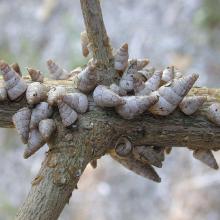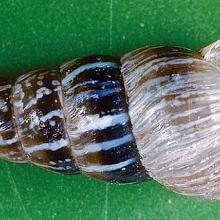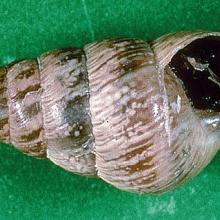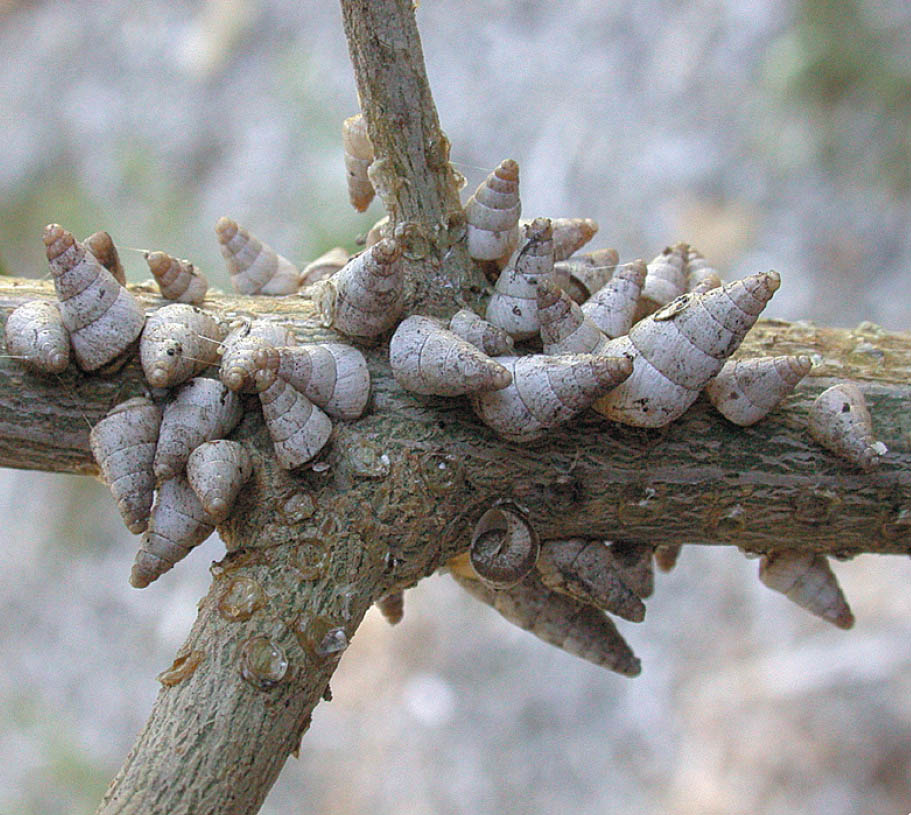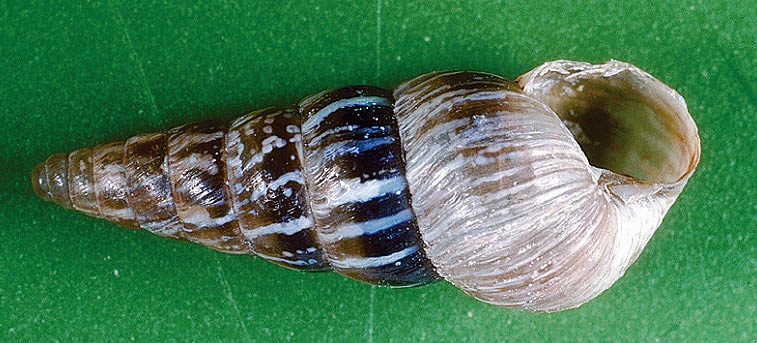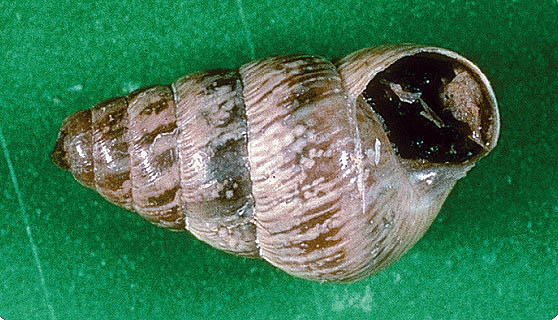Pointed or conical snails
Cochlicella acuta and Cochlicella barbara
Pointed or conical snail
Pointed or conical snail Cochlicella acuta has fawn, grey or brown conical shells up to 18mm long. The ratio of the shell length to its base diameter is always greater than two.
Small pointed or small conical snail
Small pointed or small conical snail Cochlicella barbara has fawn, grey or brown conical shells up to 10mm long. The ratio of the shell length to its base diameter is always two or less. Most abundant in high rainfall areas.
Concentrate monitoring between January and April. Control tactics for C. acuta include stubble management (January and February), burning when fire restrictions permit and baiting in early April.
Continue monitoring through growing season to detect any snail movement, particularly from the edges of paddocks.
They both feed on dead organic material. Seedlings may be eaten by C barbara to ground level when in high numbers and the very small shells can be a grain contaminant. Often over-Summer in leaf litter at the soil surface or just below surface and under stones and stumps, but can be found on posts and vegetation. Build up in numbers in the pasture phase of cropping rotations.
Sarcophagid parasitic fly Sarcophaga penicillata.
Conical snails
SARDI
 Skip to main content
Skip to main content
